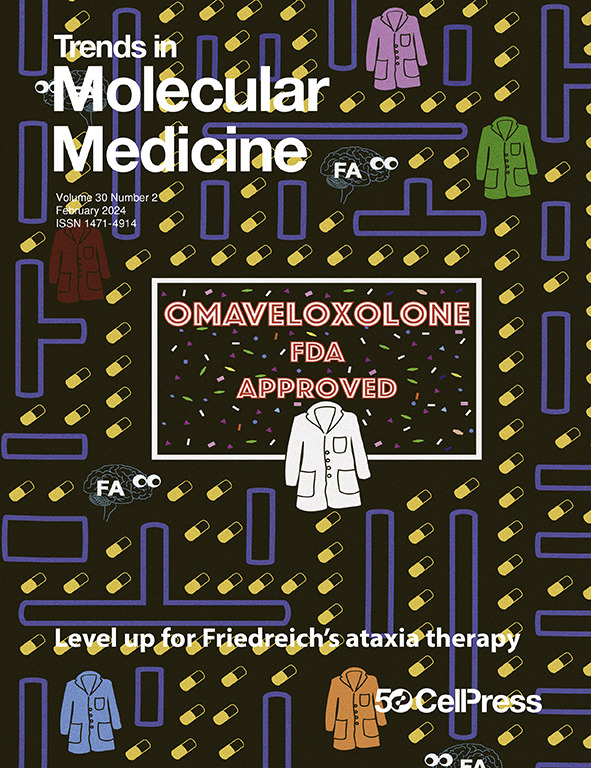作为研究工具的非传统模型:没有走过的路。
IF 12.8
1区 医学
Q1 BIOCHEMISTRY & MOLECULAR BIOLOGY
Trends in molecular medicine
Pub Date : 2024-10-01
Epub Date: 2024-07-27
DOI:10.1016/j.molmed.2024.07.005
引用次数: 0
摘要
历史原因导致生物医学研究几乎只使用少数几个物种作为主流模型,其中最突出的是麝。这种选择并不是基于麝与人类疾病的独特相关性,而是因为被用作模型的物种已有可用的资源和工具,这使得它们能被用于健康科学研究。除非非传统研究模型的利用率和范围大幅扩大,否则生物医学研究的进展仍将受限于现有模型所设定的轨迹及其提供临床相关信息的能力。本文章由计算机程序翻译,如有差异,请以英文原文为准。
Nontraditional models as research tools: the road not taken.
Historical reasons resulted in the almost exclusive use of a few species, most prominently Mus musculus, as the mainstream models in biomedical research. This selection was not based on Mus's distinctive relevance to human disease but rather to the pre-existing availability of resources and tools for the species that were used as models, which has enabled their adoption for research in health sciences. Unless the utilization and range of nontraditional research models expand considerably, progress in biomedical research will remain restricted within the trajectory that has been set by the existing models and their ability to provide clinically relevant information.
求助全文
通过发布文献求助,成功后即可免费获取论文全文。
去求助
来源期刊

Trends in molecular medicine
医学-生化与分子生物学
CiteScore
24.60
自引率
0.00%
发文量
142
审稿时长
6-12 weeks
期刊介绍:
Trends in Molecular Medicine (TMM) aims to offer concise and contextualized perspectives on the latest research advancing biomedical science toward better diagnosis, treatment, and prevention of human diseases. It focuses on research at the intersection of basic biology and clinical research, covering new concepts in human biology and pathology with clear implications for diagnostics and therapy. TMM reviews bridge the gap between bench and bedside, discussing research from preclinical studies to patient-enrolled trials. The major themes include disease mechanisms, tools and technologies, diagnostics, and therapeutics, with a preference for articles relevant to multiple themes. TMM serves as a platform for discussion, pushing traditional boundaries and fostering collaboration between scientists and clinicians. The journal seeks to publish provocative and authoritative articles that are also accessible to a broad audience, inspiring new directions in molecular medicine to enhance human health.
 求助内容:
求助内容: 应助结果提醒方式:
应助结果提醒方式:


